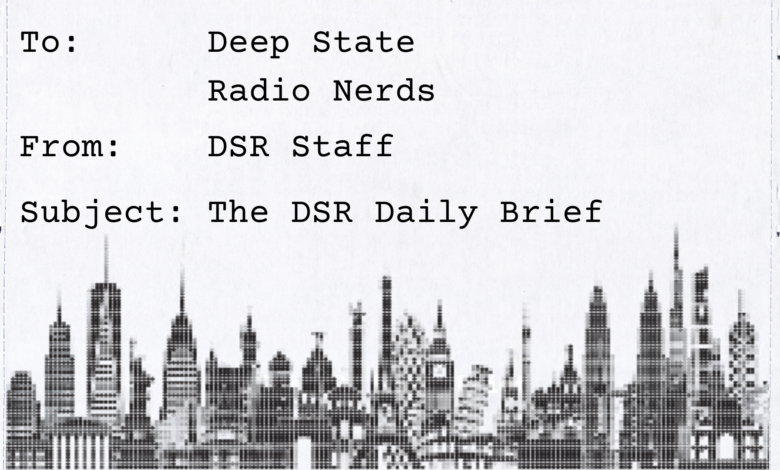The DSR Daily Brief Newsletter – Monday, April 25, 2022

The Ukraine Daily Brief is now ‘The DSR Daily Brief.’ Please be sure to rate and review. (We know that many of you are receiving the podcast in our member feed, but reviews help with discoverability.) Some notable links referenced in today’s podcast can be viewed here. We invite you to help shape our evolving coverage at daily@thedsrnetwork.com.
Ukraine
Sunday marked Orthodox Easter and 60 days of war in Ukraine, but no end in sight to Putin’s atrocities. Ukrainian troops received an outpouring of support and consecrated kulichi, however.
Defense Secretary Lloyd Austin and Secretary of State Antony Blinken visited Kyiv in a show of support. Austin also spoke to his counterpart in Germany, which hosts more than 35,000 US troops. Germany is still in the hot seat for not doing more to support Ukraine, even as much smaller countries are in Russia’s crosshairs for simply transporting military equipment.
Finally, as if actual weapons weren’t enough, Russia is reportedly looking to weaponize hunger. Sovietologists draw comparisons with the Holodomor.
The Americas
Defunct in the US, Russia Today – known for pop culture and propaganda – has taken root in Latin America. The Spanish language version, Actualidad RT, is especially popular in Argentina, Cuba and Venezuela. Draw your own conclusions.
Canada sends M-777 Howitzers to Ukraine. USAID pledges $131 million in development funds. Curiously, West Virginia is sending an ‘undisclosed number’ of M-113 armored personnel carriers.
Europe and Central Asia
President Emmanual Macron won reelection in France, but still faces domestic challenges. EU members agreed to the Digital Services Act, which will require platforms like Google and Meta to police hate speech and other harmful content. A poll shows that half of Germans oppose sending heavy weapons to Ukraine. Forty-three percent are in favor. Rheinmetall still wants to export 100 of its Marder tanks, but Marder ammo supplier Switzerland creates a new hiccup. German ex-Chancellor and ‘Putinversteher’ Gerhard Schröder is in the international spotlight as pressure to sanction him increases.
In a sign that Russia may not be planning total world destruction, the research vessel Severny Polyus will be testing ultra-low sulfur diesel (ULSD) ahead of its two-year voyage through Arctic sea ice. Other A8 members are launching initiatives to study and mitigate permafrost thaw. Among many factors contributing to the thaw are the forest fires in Siberia we highlighted in our April 21st member newsletter.
The Indo-Pacific
Japan uses the charged term ‘illegally occupied’ to describe four islands under dispute with Russia. China sees more outflows of foreign capital.
Quantum computing and AI in the Indo-Pacific may be sexier than old-fashioned land war in Europe, but AI is in Russia’s arsenal too. Here is a primer on the use of ‘deepfakes’ in the conflict. (Don’t worry, analog propaganda nerds. That’s still a thing in China and Russia.)
The Middle East and Africa
Turkey sends doctors, guns and money to Africa in a new diplomatic push.
Iran’s Revolutionary Guard Corps (IRGC) stands by its martyred man where sanctions negotiations are concerned.
DSR Exclusives
For more in-depth analysis, stay tuned to our sister podcasts on the DSR Network and tune in to tomorrow’s podcast for new and evolving stories from around the world.
The DSR Network Team (Chris Cotnoir, Grant Haver, and Katherine Hill)

